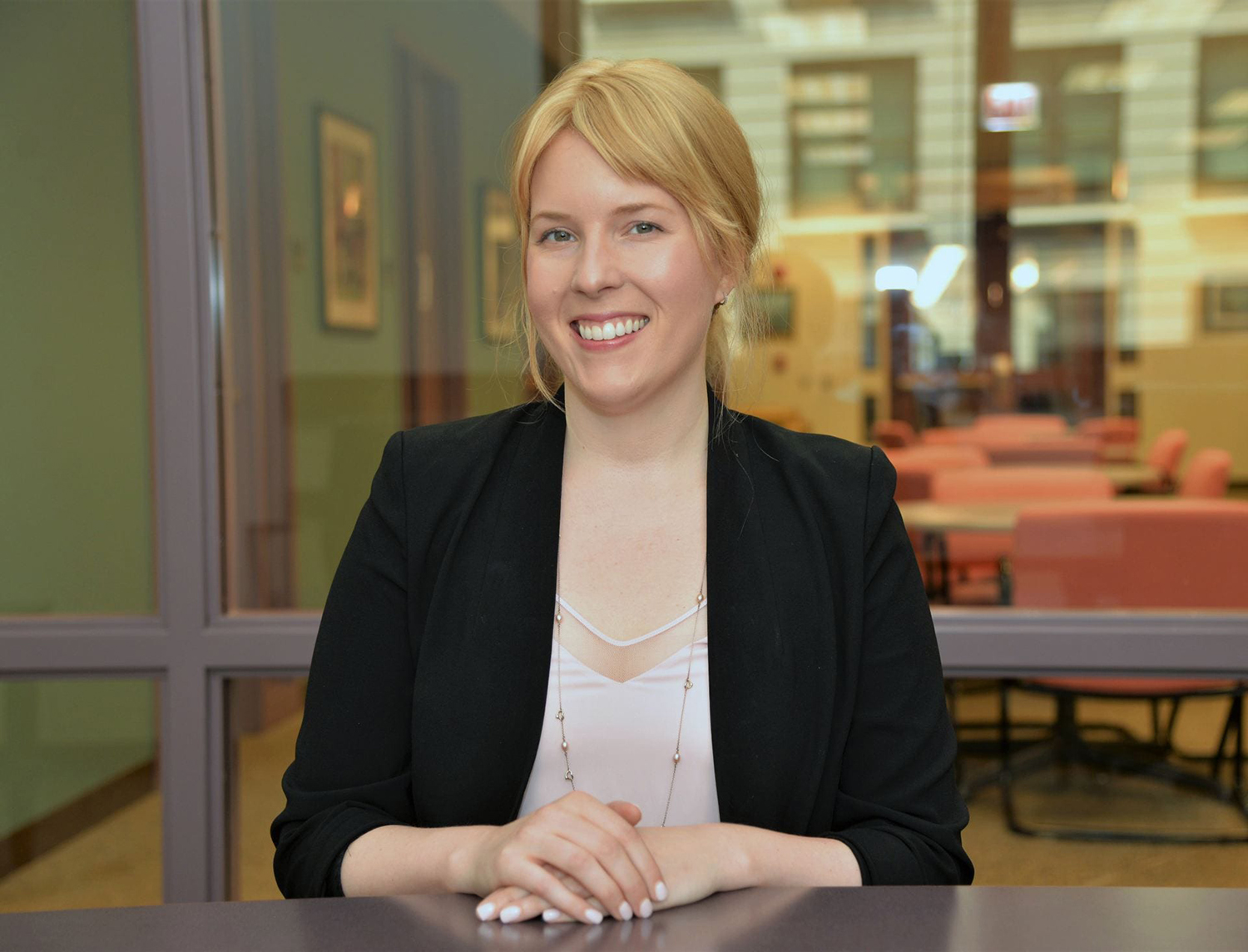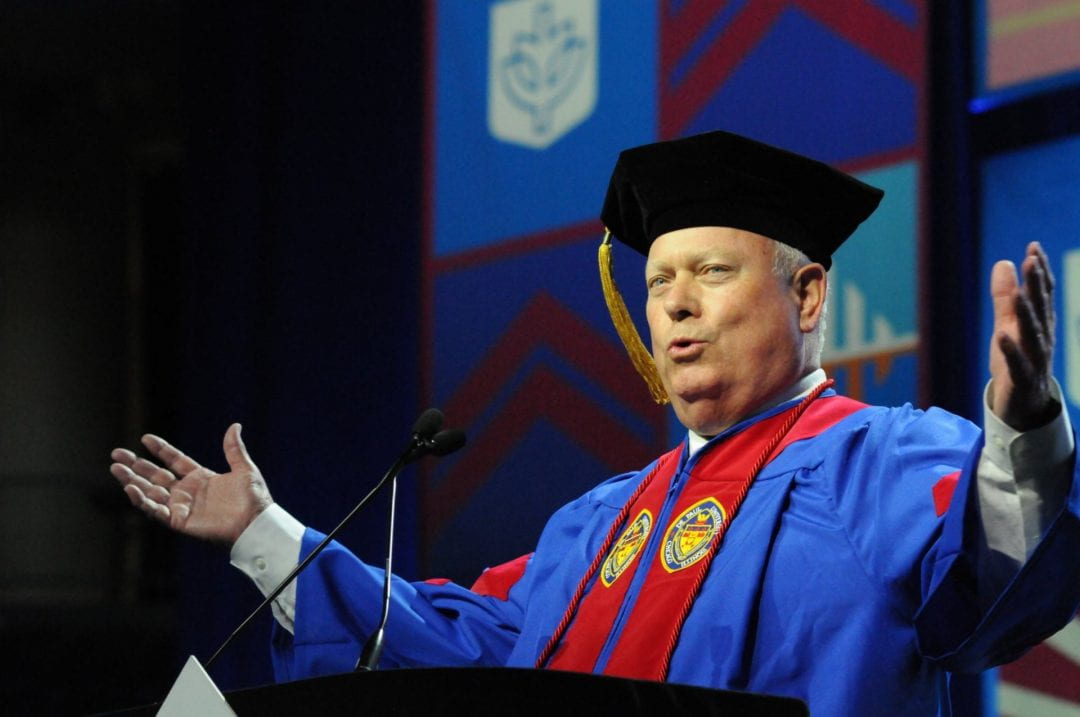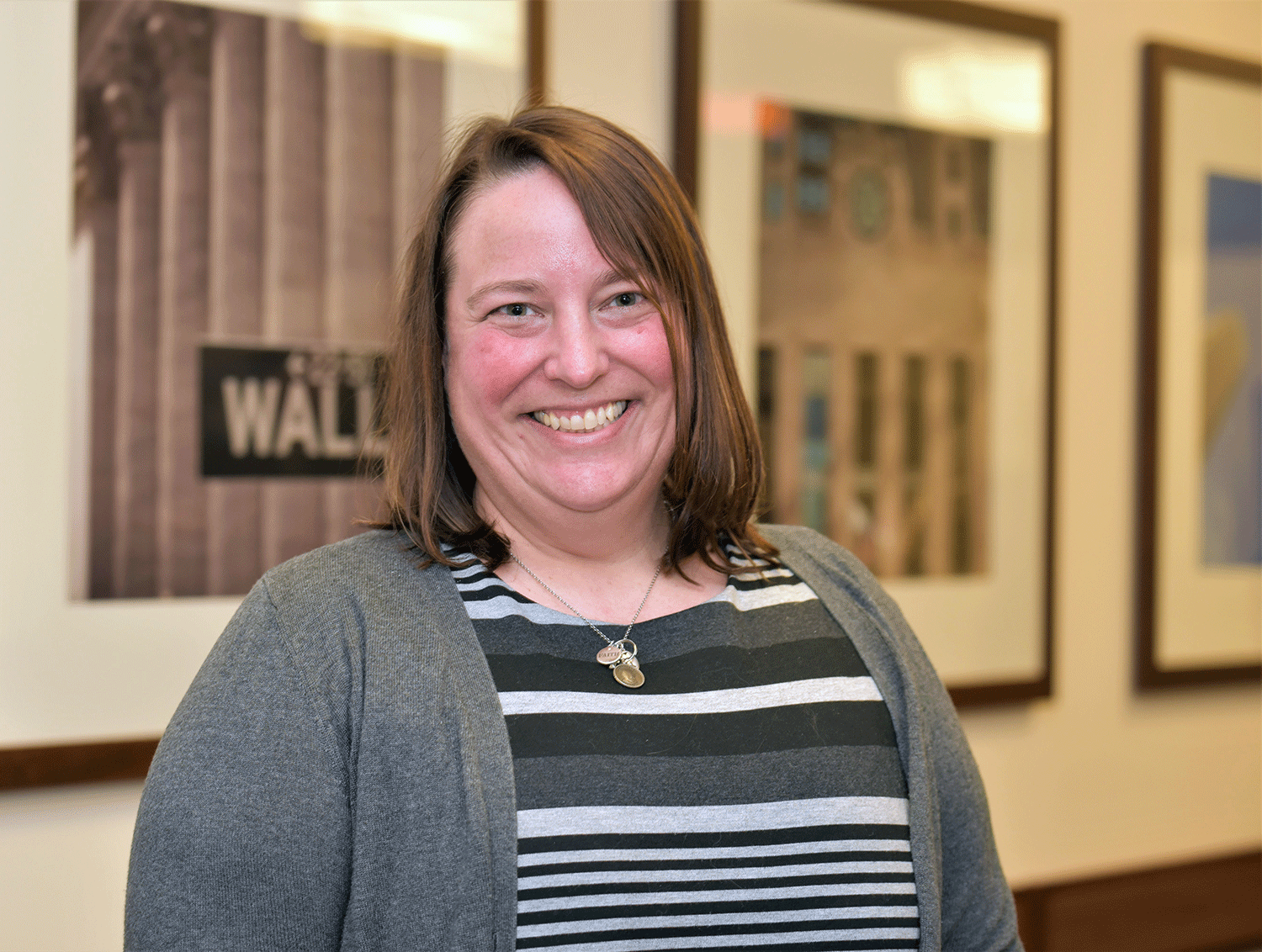Since DePaul’s Doctorate in Business Administration program launched at the Driehaus College of Business six years ago, it has consistently attracted two types of individuals: those who have significant professional experience and want to
shift to a career in academia, and those who want to stay in their corporate or nonprofit roles but want to deepen their expertise and advance their careers.
Recently, the return on investment has become more apparent, as more alumni are coming back to share their success stories.
“The program empowers you with specific tools and skills you need to be an expert decision maker in a way that a master’s degree can’t prepare you for,” says
Associate Professor Grace Lemmon, director of the program. “If you want to deeply understand a particular area of business but find you’re relying too much on what other people have done, what a textbook says or even on your own intuition, then this degree can give you a new perspective.
 Grace Lemmon, director of DePaul's Doctorate in Business Administration Program
Grace Lemmon, director of DePaul's Doctorate in Business Administration Program
"It will help you understand how to fundamentally read, interpret and synthesize primary research and apply it to vexing practical problems. You can then generate your own facts and figures that are defensible and of high quality.”
Aside from
equipping students with research skills to aid them in business, the program also focuses on career preparedness for post-graduation. During the last few years, skill labs and professional development sessions have been weaved into the program to help students learn how to brand themselves with the DBA and how to navigate the academic job market—a market unlike any other because of its unique recruitment structure and timeline—in order to assure post-graduation placement success.
Moreover, DePaul business faculty make a real investment in coaching DBA students, especially since their needs tend to be different from students in other graduate programs. The result is a more focused, individualized approach in supporting DBA students to advance toward their professional goals.
Using research skills to create corporate change
“Almost every project I was assigned in the DBA program I used as an opportunity to address a challenge that we had in our business” says
Thomas Dammrich (BA '74, MBA '78, MSA '85, DBA '19), a four-time graduate of DePaul who used the DBA to change the parental leave policies at his company.
Dammrich was CEO of the National Marine Manufacturer’s Association—a company that represents the recreational marine industry in the U.S. and has been around for more than a century—at the time that he was a student. Fairly small with roughly 100 employees, the association’s workforce has a large ratio of women, especially those of child-bearing age, and there were concerns that the maternity leave policy was not attractive from a recruitment standpoint, particularly among GenXers and Millenials. The executives who worked with Dammrich, mostly women, began advocating for a need to change the maternity leave policy to address employee recruitment and retention.
“It’s not something I was focused on, but they made their case and I listened,” he shares.
 Four-Time DePaul graduate Thomas Dammrich graduated from DePaul's DBA program in 2019, and also served as student speaker at the Kellstadt Graduate School of Business commencement ceremony. | Photo by Jim Summaria
Four-Time DePaul graduate Thomas Dammrich graduated from DePaul's DBA program in 2019, and also served as student speaker at the Kellstadt Graduate School of Business commencement ceremony. | Photo by Jim Summaria
Dammrich realized then the opportunity he had before him. He used a DBA assignment to dive into research about maternity leave policies to search for evidence that would help guide a decision on the most appropriate policy at the company. The evidence he discovered was clear. Longer leaves meant happier, more committed and more productive employees when they returned to work.
The parental leave policy for women at the National Marine Manufacturer’s Association consequently increased from three months off with six weeks of pay to six months off with three months of pay. The policy also expanded to include some leave time for fathers and for employees who adopted children—two benefits that didn’t exist before.
“These changes impacted a lot of people at our organization,” says Dammrich, who had worked there for 21 years.
“People expressed extraordinary gratitude and they came back to work better prepared to contribute. I can say unequivocally that had I not been in the DBA program, we would not have made this change. It was the tools that I learned in the DBA that allowed me to do the research and gather the evidence that we needed to make an informed decision.”
But Dammrich’s influence didn’t stop there. He also used what he was learning to address issues in the recreational marine industry at large. “How did pricing transparency, or lack thereof, impact consumer behavior in the purchase journey? I had a lot of hypotheses but no evidence before the DBA,” he says, referring to the topic of his dissertation.
“Shortly after I graduated, I presented the results of my study to a meeting with about 1,000 dealers from around the country,” he says. “I can’t say that my presentation transformed the industry since the industry is slow to change, but I know that it certainly did transform the thinking of many dealers and manufacturers who afterward began to consider changes to the way they approached pricing transparency.
“Through the DBA program I learned that there is a tremendous amount of academic research on issues that businesses grapple with every day, but business leaders are generally not aware of the research and how to access it,” continues Dammrich. “For me, the ability to translate academic research into better business decisions was one of the major benefits of the DBA program. I wish I had done it much earlier in my career.”
Shifting to a career in academia
While Dammrich used the DBA to advance his business objectives within his company and industry, Noelle Butski (BA ’02, DBA ’21) used it to pivot professionally to a career in academia. She began the program in 2019 with more than two decades of experience in corporate sales and marketing, but also with an epiphany.
 Noelle Butski (BA ’02, DBA ’21)
Noelle Butski (BA ’02, DBA ’21)
“I was at a point in my career where I was no longer feeling fulfilled. I was looking for something more, and I finally realized that that something was teaching,” she says.
Before returning to DePaul for the DBA, Butski had launched a marketing company and at the same time had begun teaching at a local community college. It was there she discovered that teaching was her true passion. So, she closed her business and went on to find a full-time lecturer position at a university—soon realizing that she needed a terminal degree to become a full professor.
“Pursuing a PhD was just not feasible for me and where I was in my life at the time, so I decided on the DBA,” she says. “I love DePaul and had a great experience there [as an undergrad] so it was an easy decision to go back.”
Today, Butski is an assistant professor at the University of Arkansas at Little Rock where she teaches marketing and sales. Her teaching, she says, is inspired by the faculty in the DBA program who modeled some of the best teaching practices that she uses now with her own students. “I was talking to Grace [Lemmon] the other day and I told her I’m teaching stats for marketing the way you taught it to me because that was the first time I ever loved stats. It’s true that the teaching I received in the DBA was some of the best training I received for being a faculty member now myself.
“DePaul gave me that something that was missing, that fulfilling piece,” continues Butski. “I started my education there and ended it there, and now I get to live my dream of helping the next generation of business professionals achieve theirs.”
The DePaul DBA is a part-time, three-year program that empowers students to frame complex business problems, analyze data and develop strategic solutions. With one cohort that begins every September, the program delivers its rigorous curriculum across seven in-person residencies per year, and attracts students from across the United States.
Click here to learn more.